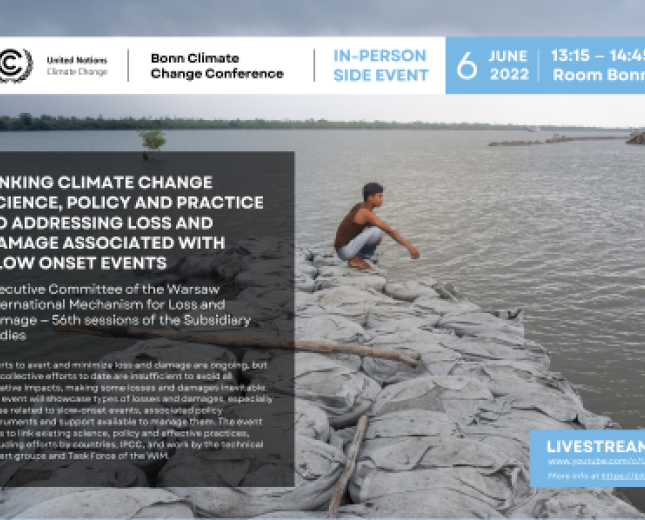0
Subsidiary Body events
Linking Climate Change Science, Policy and Practice to Addressing Loss and Damage Associated with Slow onset Events
06
Jun.
2022
13:15h
-
14:45h
Bonn, Germany
Germany
WCCB - Room Bonn, WCCB
WCCB
Adaptation & Loss and Damage
UNFCCC
English
0
Subsidiary Body events
Linking Climate Change Science, Policy and Practice to Addressing Loss and Damage Associated with Slow onset Events
06
Jun.
2022
13:15h
-
14:45h
Bonn, Germany
Germany
WCCB - Room Bonn, WCCB
WCCB
Adaptation & Loss and Damage
UNFCCC
English
